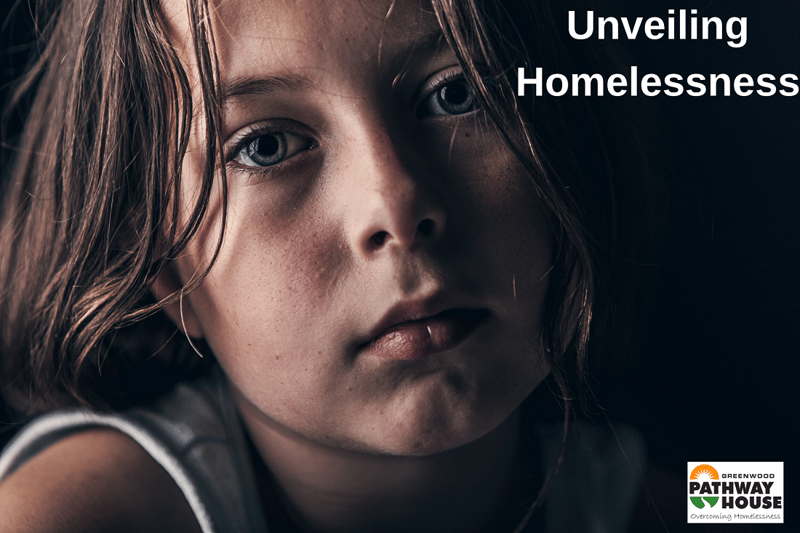Unveiling Homelessness

Few could deny that everyone has been tossed around in some rocky seas these past months since March. In fact, unease continues around the Country and indeed well beyond our shores.
Those of us who know, love and trust God have a safe harbor; but sadly, His is a harbor that not everyone has eyes to see.
Our primary goal at Pathway House, above all else, is to bring the safe harbor of Christ into view and then to make it a reality for our residents— not only while they’re here, but for a lifetime.
Bringing that about, however, requires a patient process. It is one of leading rather than pushing, and it is better achieved with an eyedropper than a fire hose.
Lower self-esteem and hopelessness are commonplace states-of-mind among chronically homeless individuals. This often leads a person to self-identify as a failure, which can be debilitating.
Of course, the way in which the world typically measures success versus failure only promotes these feelings of inadequacy.
To counteract this, we offer counsel to the men and women in our care that “putting God first” is not just some catchphrase utilized by Christian media. Rather, it is the essential practice of daily life.
When God is our priority, we embrace life in the shadow of his sovereignty, always seeking his guidance. We can never then be “a failure” as His eyes see us, but in fact quite the reverse.
Embracing this as a core belief makes irrelevant mankind’s opinion of what success is or is not, obviating the inevitable comparisons we devise between ourselves and the person next door, whose grass we imagine as being always greener.
While success in God’s eyes and success in our worldly eyes are surely quite different, it is possible for the two to co-exist.
Provided we keep God first, stay humbly grateful, and conduct all our affairs in harmony with His Word, we can then be good stewards of any degree of material wealth we might accumulate, whether it be by toil, by wit, or by windfall.
So…. with that in mind, let us give God praise for the amazing developments we’ve seen at Pathway House, just during a 90-day period, despite the global pandemic and other disruptive events:
- 18 people obtained jobs, notwithstanding record unemployment and job loss.
- 16 people moved forward into independent housing
- 8 people began job training
- 6 people entered a substance abuse recovery program
- 3 people obtained a vehicle
- 1 person had critical eye surgery with life altering results
- 9,117 meals were served to those who might otherwise have gone hungry
- 6 People had confessions of faith, and one of those was Baptized at our Pathway House Sunday service.
Once again, we believe those awesome accomplishments are related directly to putting God first, an approach to life that helps our residents overcome a lot of negative emotional baggage that weighs most of them down.
What might that baggage contain that makes it so burdensome? One answer is “trauma”.
Tom Regehr, an experienced Canadian expert on the subject says: “Trauma is most often the root cause of homelessness and most cases of homelessness result from a series of losses, so severe and betraying, that these individuals cannot even tolerate the idea of hope.”
A traumatic event is an incident that causes physical, emotional, spiritual, or psychological harm. Such incidents could include sexual or physical assault, witnessing a violent or very disturbing event, a death, or acts of brutality or perversion, etc.
These are distressing issues we don’t even like to think about, particularly in relation to children, especially if we are fortunate enough to have escaped confronting such things.
They are however a bleak reality for most of our residents and for the broader homeless community.
Consistently, we find that most of our Pathway residents spring from the toxic stew that comes from a life of complex trauma (repeated, sustained trauma).
When ignored, it undermines the ability to hold jobs, to maintain independent housing, and yes, it certainly can lead to substance abuse, and frequently does. Unchecked, these problems feed on themselves and get progressively worse, contaminating one generation after the other.
Children who are suffering homelessness are much more likely to be exposed to adverse childhood experiences.
These children are much more likely to become homeless as adults, much more likely to enter the prison system, and much more likely to experience physical and mental health problems over time.
We must try to reject the worn-out stereotypes, the notions that homelessness can be put down to lazy individuals with poor hygiene, wanting nothing beyond endless days of job avoidance, park benches, and cheap wine.
Accepting that false scenario may be a convenient way to dismiss the problem. If we are to be honest, it may also help us avoid the irritation of coming face to face with Christ’s command to show compassion and to love our neighbors as ourselves.
The old stereotypes have unfortunately become deeply embedded in our psyche, but they are simply not true in the vast majority of cases.
We have enrolled men, women, and mothers with children at Pathway House stemming from every socio-economic status and educational background.
Spiritual and emotional brokenness does not discriminate according to race, creed, education level, employment history or social status.
Homelessness is not primarily a housing problem at all, but a human one. The real challenge is not finding housing or a job but rebuilding the human being.
To be continued...
